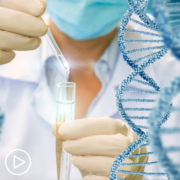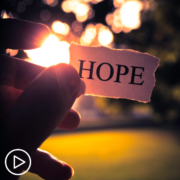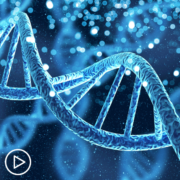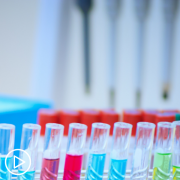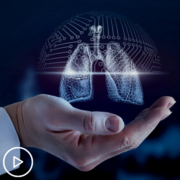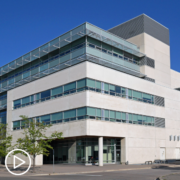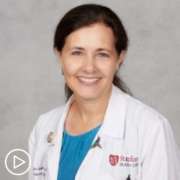How Can We Leverage Lung Cancer Biomarker Data to Address Health Disparities
How Can We Leverage Lung Cancer Biomarker Data to Address Health Disparities? from Patient Empowerment Network on Vimeo.
How can biomarker disparities be overcome by data collection? Experts Dr. Joshua Sabari from NYU Langone and Dr. Eugene Manley from SCHEQ Foundation discuss the status of biomarker data sharing, biobanks, and improvements that can be made toward the future.
Download Resource Guide | Descargar guía de recursos
See More from [ACT]IVATED NSCLC Biomarkers
Related Resources:
Transcript:
Lisa Hatifeld:
Are there any national or international databases that collect information from those biopsies, like a biopsy data bank of some kind so they can look at this disparate group of mutations? Or is it just institutional, like if an institution collects that tissue, they keep that information? I’m just wondering if that could help in any way with the disparities we see in those biomarkers.
Dr. Joshua Sabari:
Yeah, it’s a great question. AACR American Association for Cancer Research, a nonprofit, has started a biobank called the Genie Biobank, where you can input clinical as well as genomic information from patients. But to be honest, it’s very scattered. I mean, most of the databases that we have are individual institutions. There is very little sharing of data from institution to institution. There’s very little sharing of data from pharmaceuticals to institutions and vice versa.
I think everybody really needs to work in and pitch in together here that this is a common theme that comes up at a lot of our national meetings is how do we get everyone on the same page as opposed to everybody working in their different silos. It would be very helpful if all genomic data at every institution was available to everybody, but you can understand how that could be both confidential as well as proprietary. So, unfortunately in 2024, we don’t have broad biobanks or databases that are available publicly for consumption of investigators.
Dr. Eugene Manley:
And I think on top, beyond there not really being a massive biobank, there are still differences in what we can capture in race/ethnicity in the U.S. versus Canada and Europe. Sometimes they don’t even consider race as a category, which sometimes people think race is a social construct, but at the same token, there are distinct disparities we see in the U.S., because we capture this data, and it’s hard to then do this globally when we aren’t able to capture all it does.
But if you think about it, if you look across there are even genetic differences across each of those countries, we just don’t routinely think about it. So it’s really, we need to work on developing one, but it takes time, money and groups willing to work together, and we just, unfortunately, are not there yet.

